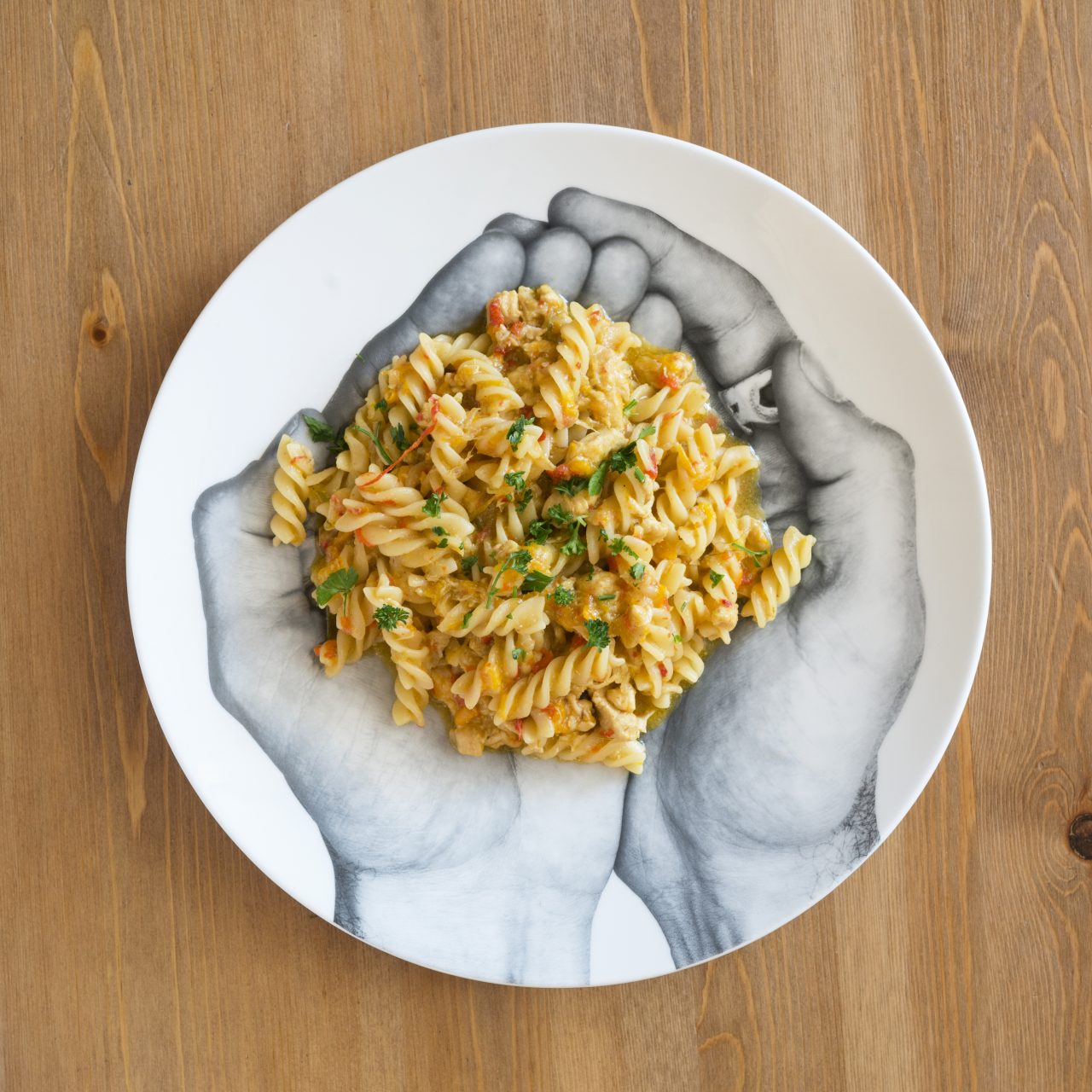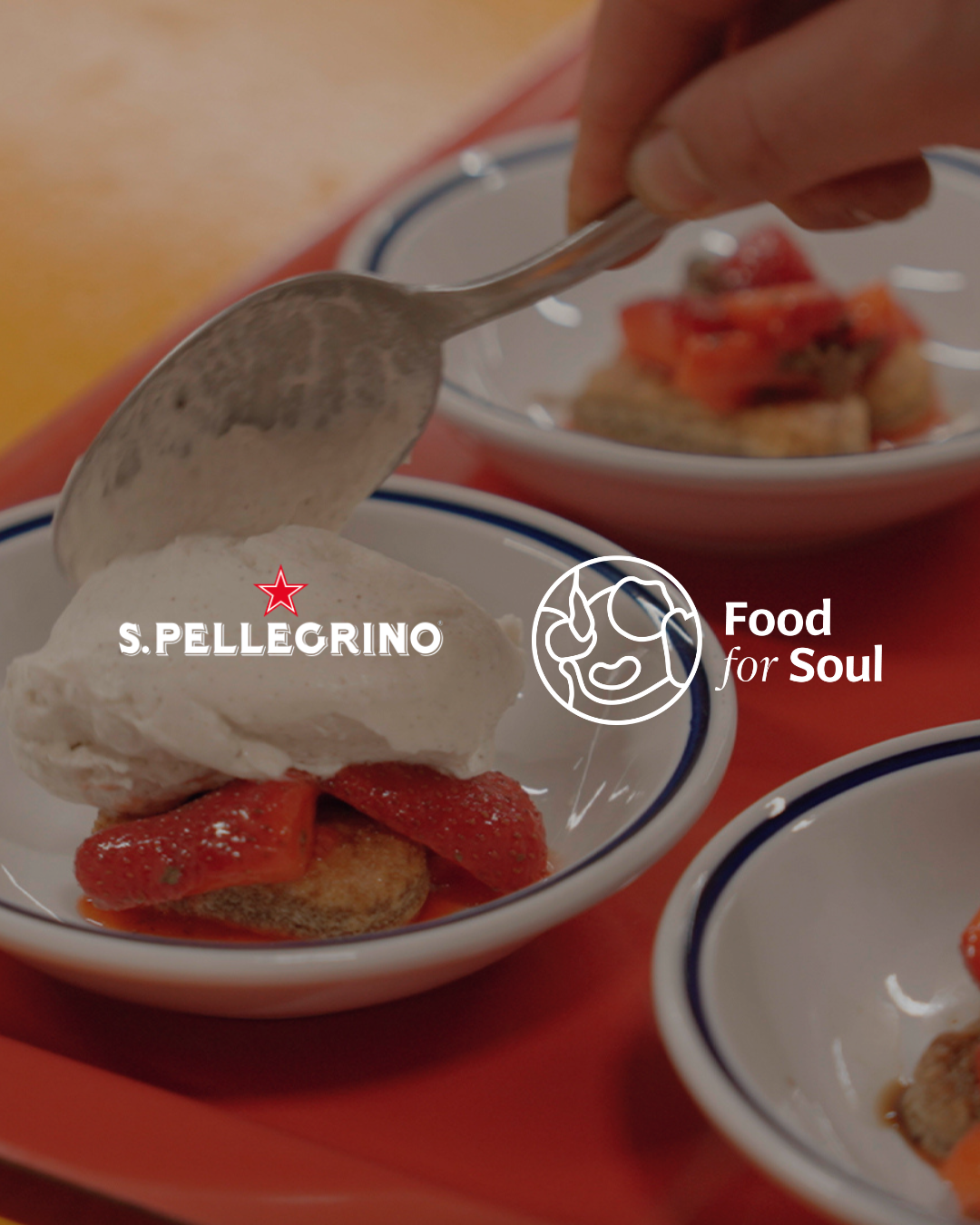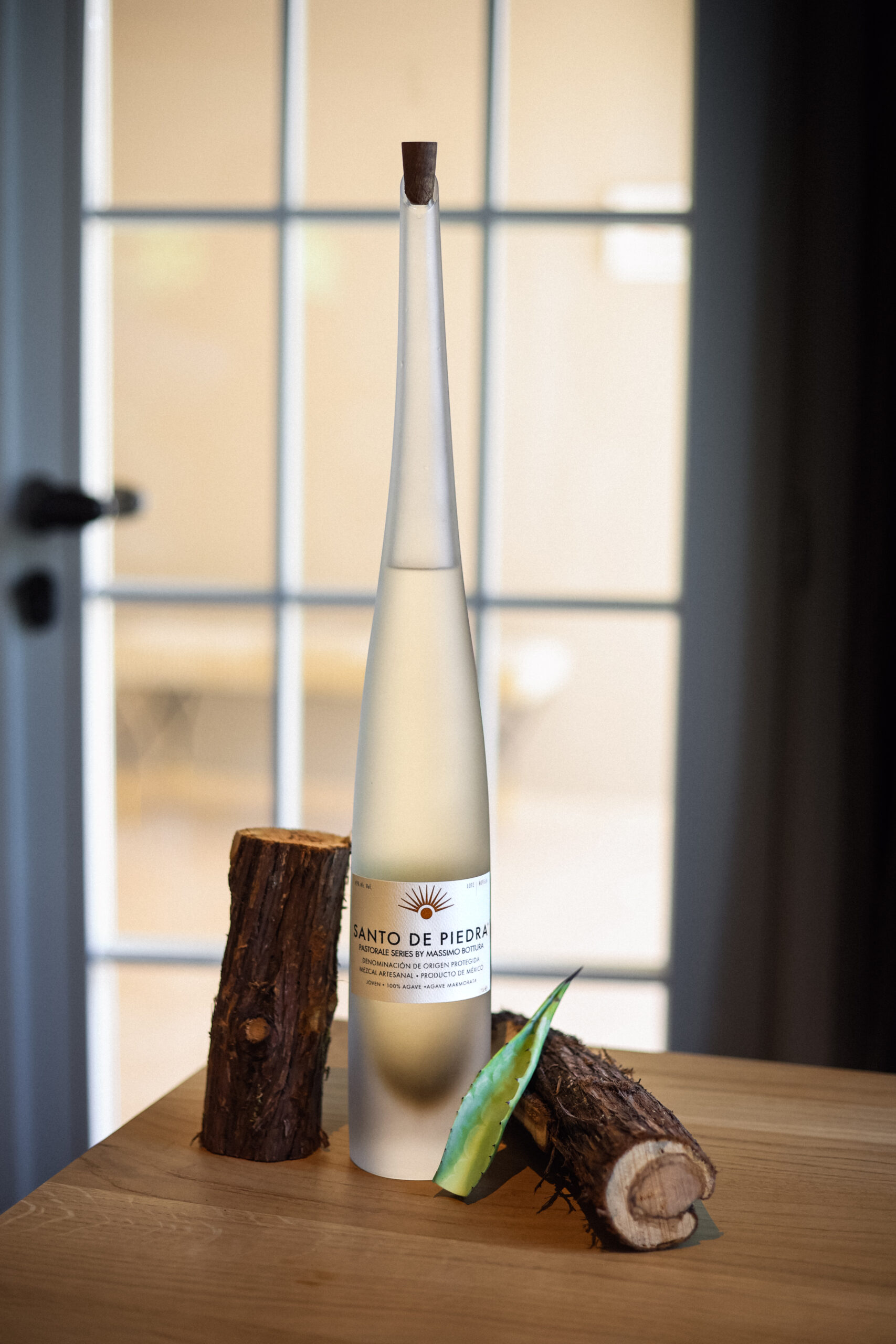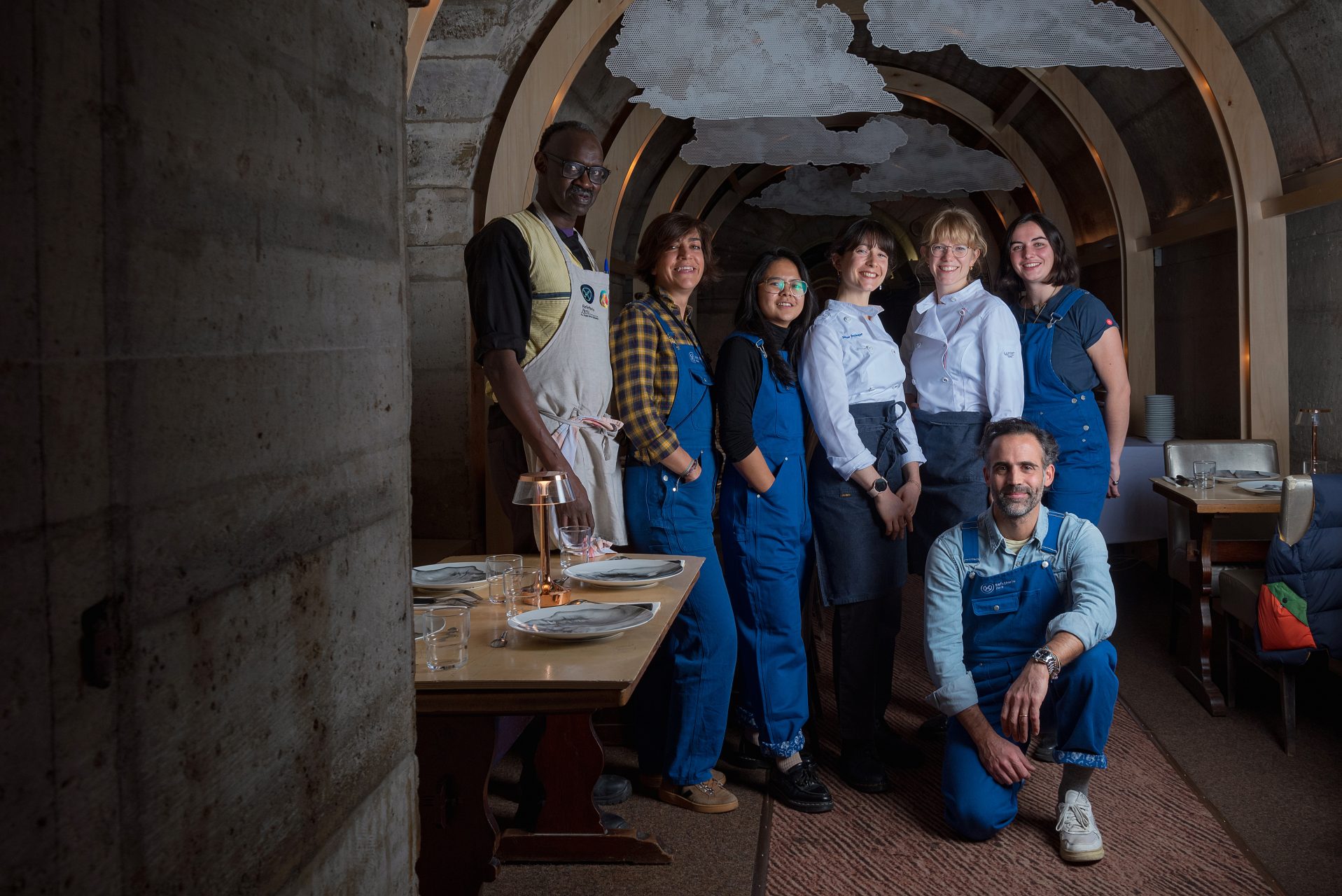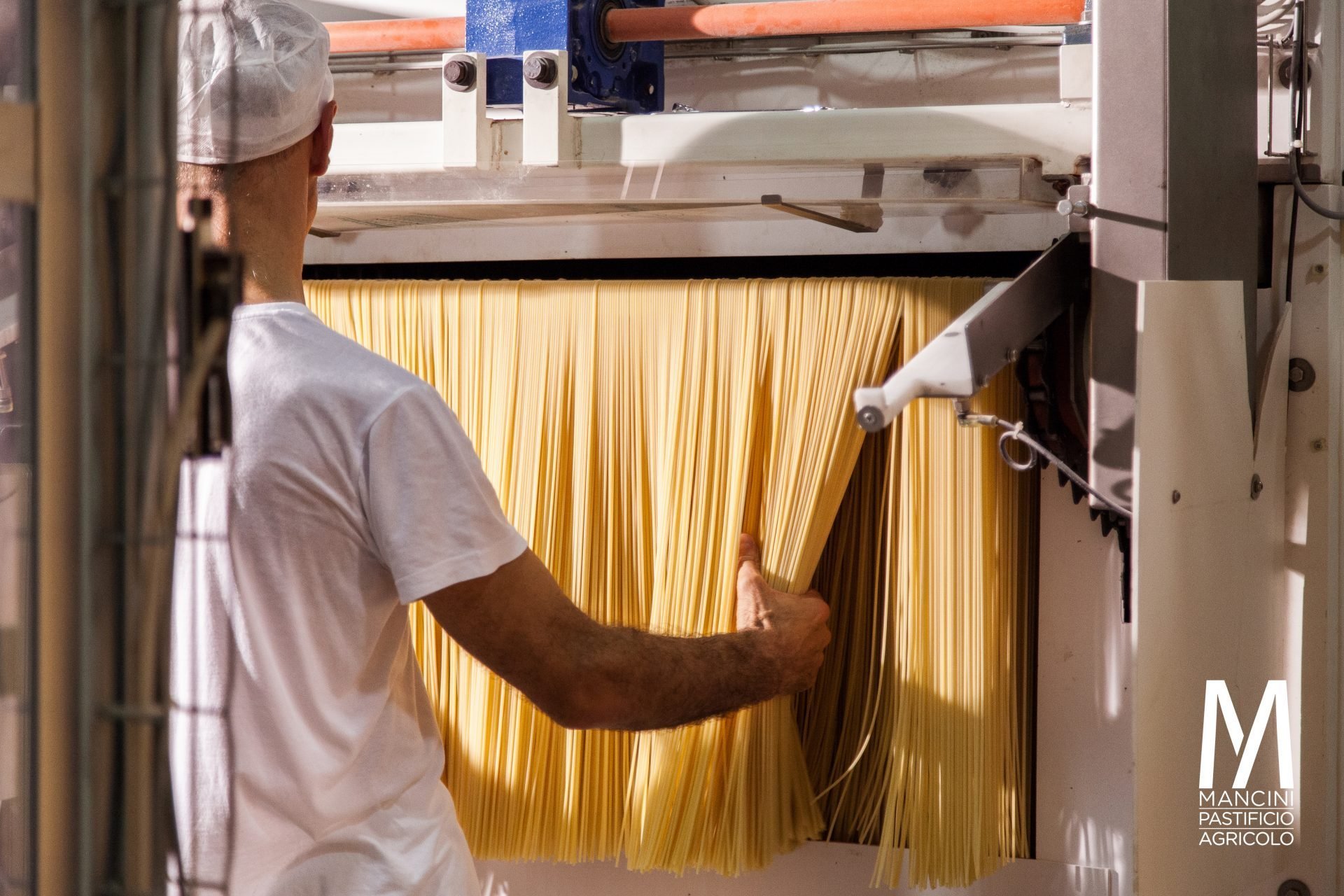Credits: Jean-Blaise Hall
Support can have many forms. No one knows this better than Riccardo Felicetti, CEO of Pastificio Felicetti, that in addition to supporting us for years with consistent donations of pasta to the Refettorios, has recently wanted to experience serving it at our tables.
Protect natural resources, promote biodiversity, respect the balance of ecosystems and safeguard the environment are ambitious goals that the Felicetti pasta factory has been pursuing for years through concrete actions. In addition to being an example of good corporate responsibility, Pastificio Felicetti has for years supported the work of Food for Soul by both helping us to expand our activities and supplying our various projects with pasta, and by giving guests from all over the world access to healthy and nutritious meals.
Water, flour, respect for the ingredients and a great sense of responsibility: this is what lies behind the winning recipe of Felicetti, a pasta company that has made simplicity and respect its core values.
And it’s exactly from this sense of purity and simplicity that Riccardo Felicetti tells us how a meal which contains a sense of necessity can become a real “generator of change”.
In a previous interview you recalled that your family decided to open a small pasta factory for family use, taking advantage of the carpentry production waste. Could you say that a sensitivity towards the theme of reuse is written in your DNA?
I am not sure that a propensity to reuse, to not waste, could have been considered something virtuous at the beginning of the last century. More simply put, it was something necessary, “of necessity virtue” as an old villager would say. I am convinced, however, that the strength of our family is expressed also in not having forgotten what real needs are.
You recently went to the Refettorio Paris and wanted to take part by volunteering. What did you take away from the experience?
I carry with me the feeling of gratitude from the guests from that evening and the wonderful taste of having done good.
What impressed you most from meeting the guests of Refettorio Paris? Is there a certain moment or situation that you remember in particular?
A woman “kidnapped” me and bombarded me with questions. My French is rather poor but with great patience she helped me to explain who I am and what I was doing at the Refettorio, also telling me a little about herself. She greeted me farewell with a “goodbye” and I really hope it will be.
Your company has always stood out for its particular attention to nature, environmental protection and conscious soil use. But in a private, domestic dimension, is there anything we can all do to help create change?
Any virtuous domestic behavior that concerns the reduction of waste, from energy to food, and from food to waste management, is an extraordinary first step that can change the fate of the environment in which we live. Feeling responsible for change is necessary to be an active subject in this process. Acquiring this sense of responsibility and considering it ethically binding and not only costly, is a fundamental prerequisite.
Pastificio Felicetti has been supporting Food for Soul for years, contributing to the creation of healthy and nutritious meals for our guests all over the world. Where does the desire to support our projects come from?
Supporting projects with which we share core values is a simple commitment for a company that believes it has an important social responsibility. We can operate on a local level on our own, which we have done in many ways since the pasta factory was founded, but when acting on a global level, it is right to support those who have an idea that we share.
What benefits are generated, in terms of change, by a partnership with a non-profit like Food for Soul?
Being a partner of Food for Soul helps to increase the nonprofit’s ability to build projects and expand its reach and communicate its values. These are generators of change.
Your pasta, that has for years been chosen and used by the best chefs in the world as an ingredient destined for fine dining, is also at the base of the meals of the Refettorios’ guests. When one speaks about food- for the body and for the soul- there aren’t many differences…
There are no differences, as long as respect for raw materials, cooks, and guests remains.
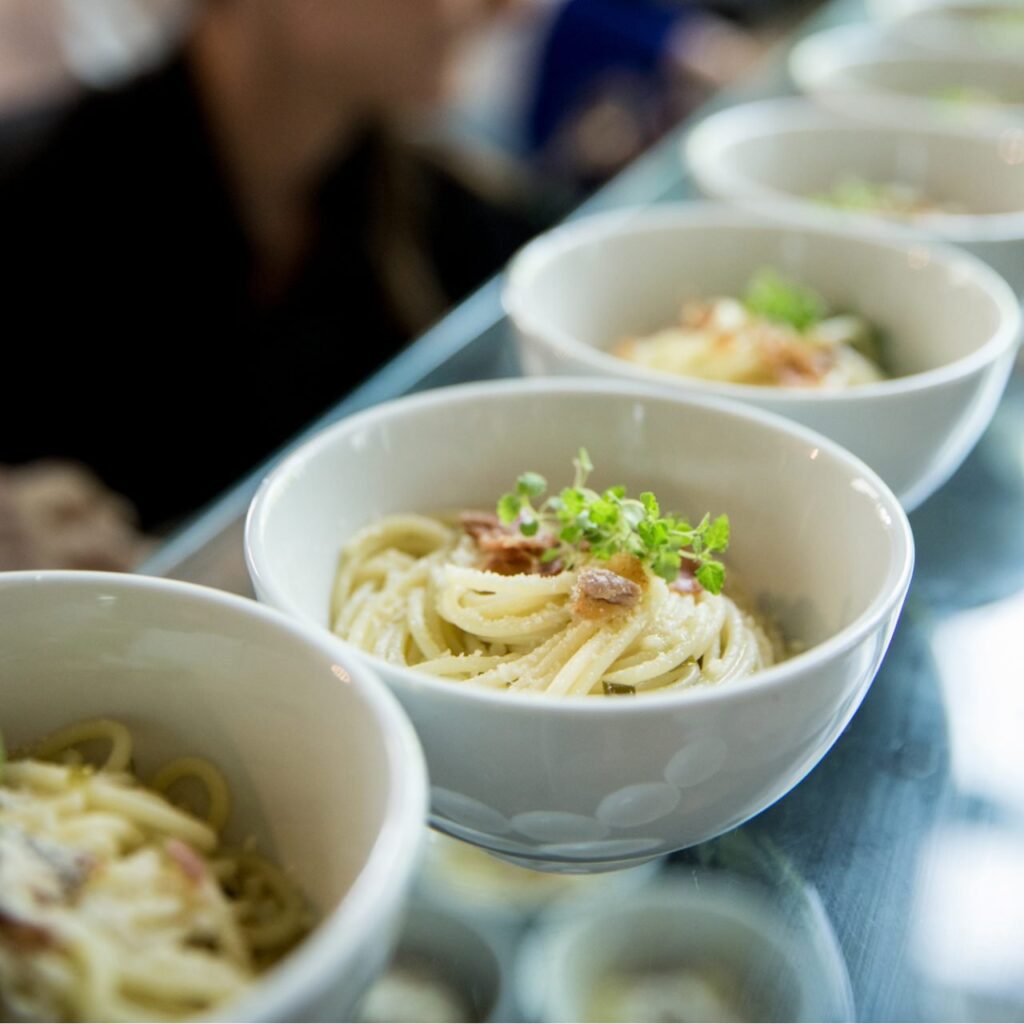
Credits: Simon Owen Red Photographic



